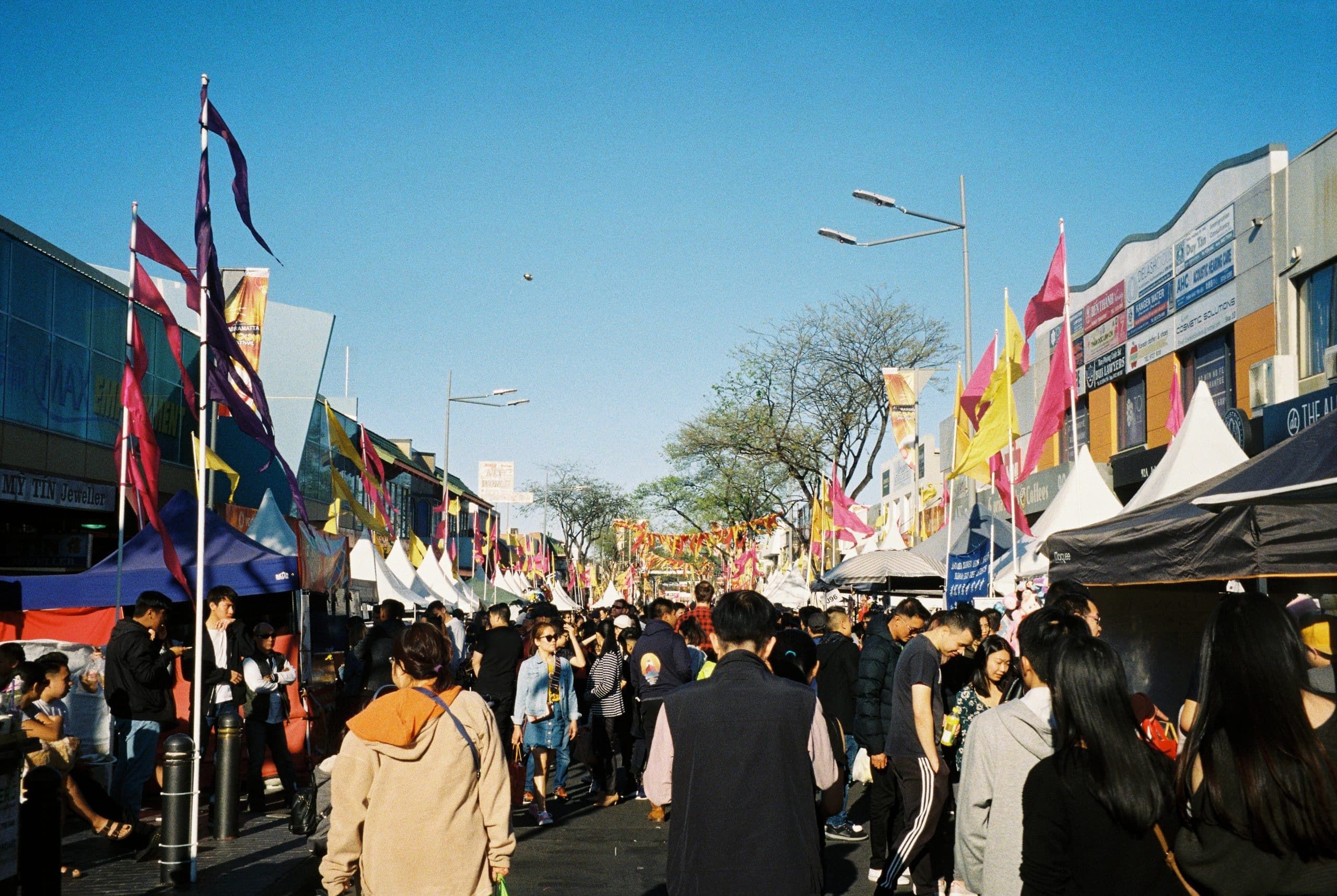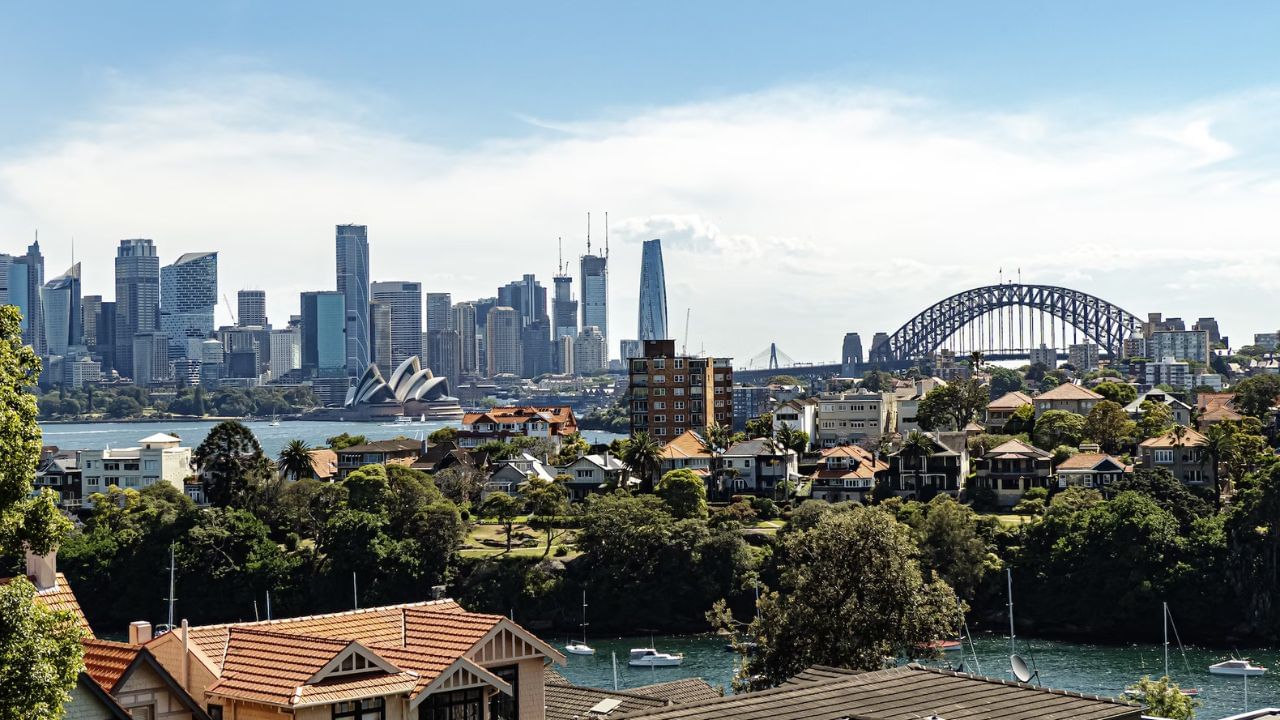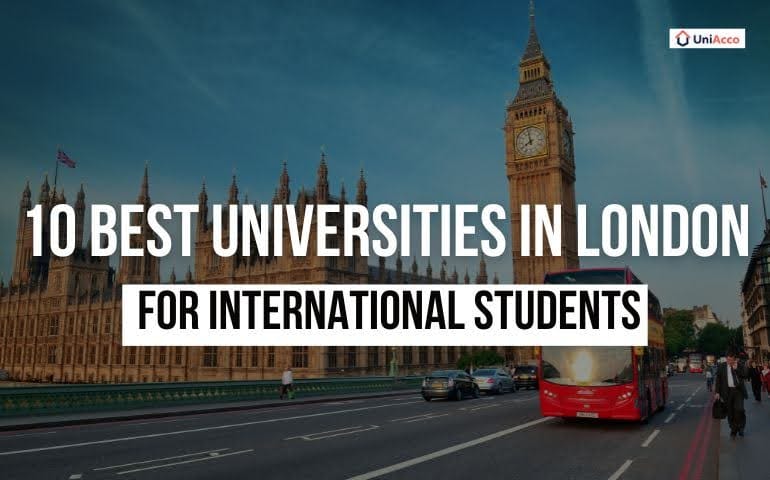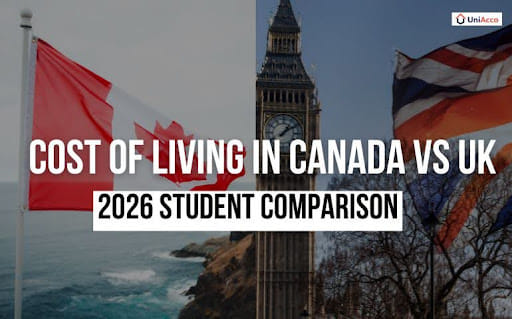Embarking on a journey to settle in Australia from India is a significant step towards a new life filled with opportunities and experiences. This guide, tailored to those seeking insights on how to settle in Australia from India, provides essential information and valuable tips.
Whether you’re navigating the visa process, seeking employment, or adapting to Australian culture, we’ll walk you through the crucial aspects of making Australia your new home. With a focus on simplicity and clarity, this guide aims to be your trusted companion on this life-changing adventure. So, let’s explore the path to settling in Australia from India together.
Why Should You Settle In Australia?
If you’re an Indian considering the prospect of settling in Australia, there are several compelling reasons to make the move. Here’s a guide on how to settle in Australia from India:
- Diverse and Inclusive Society- Australia is known for its multiculturalism and openness to people from all corners of the world. Australians warmly embrace individuals from diverse cultural backgrounds, making it a welcoming environment for newcomers.
- World-Class Education- Australia boasts some of the world’s top-ranked universities, with six of them featuring in the Top 100 Universities globally. This offers Indian students a wide array of disciplines and degrees to choose from, including Engineering, Accounting, Nursing, Social Work, and more.
- English Language Proficiency- Proficiency in the English language is a key factor for migration to Australia. While Australian English may have its unique slang, it becomes easier to settle down once you get accustomed to it.
- Temporary Graduate Visa (Subclass 485)- As an international student in Australia, you can apply for a Temporary Graduate Visa after completing your degree. This visa allows you to stay and work in Australia for up to five years, depending on your skill set and qualifications, providing ample time to build your career.
- Equal Employment Opportunities- The Australian government welcomes skilled individuals from around the world, including India, provided there is a match between your skills and education. This policy ensures that you have access to high-paying job opportunities throughout your life in Australia.
If you want to know how to settle in Australia from India permanently, you’ll need to follow a series of steps. These typically include obtaining the appropriate visa, meeting the necessary skill and language requirements, and complying with Australian immigration laws. It’s advisable to consult with immigration experts and research the specific visa pathways available to you based on your qualifications and intentions to make a smooth transition to life in Australia.
Advantages Of Settling In Australia From India
If you’re wondering How to settle in Australia from India? The decision offers a host of compelling benefits. Here’s a breakdown of these advantages and how you can make a permanent move to Australia from India:
- High Standard of Living: How to settle in Australia from India? What are the major advantages of settling in Australia? Settling in Australia grants you access to a high standard of living. Post-graduation, you can enjoy top-notch housing, quality schools, renowned universities, world-class healthcare facilities, and an efficient public transportation system, all at affordable rates.
- Welcoming and Diverse Society: With over 30% of Australians being immigrants themselves, you can rest assured that the local population is welcoming and accustomed to newcomers. This makes it easier to adapt to Australian culture and feel at home.
- Versatile Employment Opportunities: Upon settling in Australia after your studies, you gain the freedom to work for any employer and in any profession. This flexibility enhances your career prospects and allows you to explore diverse job opportunities.
- Free Healthcare: Australia offers a robust healthcare system, and as a resident, you can access free healthcare benefits through the Medicare Insurance Program. This lifelong advantage ensures access to world-class healthcare services at no additional cost.
- Quality of Life: Several Australian cities consistently rank among the best in the world for quality of life, according to surveys like ‘The Economist’s List of Best Cities to Live In.’ This demonstrates that by making the move to Australia, you can experience an exceptional quality of life.
Types Of Immigration In Australia
If you have the big question- How to settle in Australia from India? This blog will help you with that. Australia attracts a diverse range of immigrants, each category contributing uniquely to the nation’s multicultural tapestry. These immigrant types encompass skilled workers, family reunification, humanitarian entrants, and more. Here, we present a table outlining the key types of immigrants in Australia and their respective purposes and qualifications.
| Immigration Category | Purpose and Qualifications |
| Skilled Migration | Skilled workers and professionals with in-demand skills. |
| Family Reunion | Reuniting family members with Australian citizens/residents. |
| Humanitarian Entrants | Refugees and those in need of humanitarian assistance. |
| Student Visa Holders | International students pursuing education in Australia. |
| Business and Investor | Entrepreneurs and investors seeking business opportunities. |
| Working Holiday Makers | Young adults on working holidays for cultural exchange. |
| Partner Visa Applicants | Spouses and de facto partners of Australian residents. |
This table provides a snapshot of the diverse immigration pathways available in Australia, catering to individuals with various goals and circumstances.
What Is Permanent Residence In Australia?
For everyone who is looking forward and is wondering how to settle in Australia from India, obtaining a Permanent Residency (PR) visa is a key step. With this visa, you can live, work, and study in Australia without limitations, enjoying the same privileges as Australian citizens. This includes access to Australia’s national health scheme, and Medicare, ensuring comprehensive healthcare coverage.
How To Become A Permanent Resident In Australia?
To settle permanently in Australia from India, you can apply for a Permanent Residency (PR) visa. The most common pathway is through skilled migration, where you need to meet specific criteria based on your qualifications and work experience. Alternatively, family reunions or humanitarian visas are options. Once you secure PR, you can live, work, and study in Australia indefinitely, enjoying the benefits and opportunities available to Australian residents and citizens.
Eligibility Criteria to Apply
To apply for Permanent Residency (PR) in Australia, students must meet specific eligibility criteria, which may differ based on the chosen category. The general requirements include:
- Age Limit: Applicants should be under 45 years of age at the time of application.
- English Proficiency: Proof of a competent level of English language proficiency is required. This is usually demonstrated through standardized language tests like IELTS or PTE.
- Occupation: Applicants must belong to an occupation listed on the Skilled Occupation List (SOL) that is currently accepted for migration to Australia. This ensures that they possess skills in demand in the Australian job market.
Required Points to be Eligible for Australian PR
To settle permanently in Australia from India, meeting the minimum points requirement is crucial for eligibility. A minimum of 65 points is needed to be eligible for Australian PR. However, achieving higher scores, typically between 80 to 85 points, significantly enhances your chances of receiving an invitation to apply for PR in Australia. Below are two key visa categories requiring 65 points:
- Skilled Independent Visa (Subclass 189): This visa is for individuals under 45 years of age possessing the skills in demand by the Australian government. Under Subclass 189, no nominator or sponsor is required; applicants can apply only upon receiving a formal invitation.
- Skilled Nominated Visa (Subclass 190): This visa is for nominated skilled workers who can settle in any nominated state or territory in Australia. Eligibility for Subclass 190 hinges on receiving an invitation and belonging to an occupation listed on the Skilled Occupation List (SOL).
Meeting the points requirement and receiving an invitation are crucial steps in the journey to settle permanently in Australia from India.
Benefits Of Having A PR In Australia

Obtaining Permanent Residency (PR) in Australia comes with several valuable benefits:
- Geographic Freedom: PR holders can live and travel anywhere within Australia, offering flexibility in choosing their place of residence.
- Access to Education Loans: PR status allows individuals to apply for education loans, facilitating the pursuit of higher studies in Australia’s renowned institutions.
- Government Visa Eligibility: PR holders can apply for various government-sponsored visas, expanding their options for immigration and travel.
- Free Education: Children of PR holders are entitled to free education up to a certain age, ensuring quality schooling without additional costs.
- Social Security Benefits: After completing two years with an Australian PR visa, individuals become eligible for social security benefits, providing financial support when needed.
- Sponsorship Privileges: PR holders can sponsor eligible relatives for their PR status, provided they meet the government’s specified prerequisites, fostering family reunification opportunities.
What To Know Before You Move
In this detailed blog, on How to Settle In Australia From India, there are essential considerations to keep in mind. These include visa requirements, cultural adjustments, job prospects, and healthcare access. Understanding these factors is crucial for a smooth transition when settling in Australia from India.
Choosing The Right Type Of Visa
When considering settling in Australia from India, understanding the various visa options is crucial. Here’s a brief overview of key visa categories.
- Skilled Migration Visa (Subclass 189 and 190)
- Subclass 189: This visa is for skilled workers under 45 years of age who do not require nomination or sponsorship. Applicants must have skills listed on the SOL.
- Subclass 190: Skilled Nominated Visa is for skilled workers nominated by an Australian state or territory. Applicants must receive an invitation and have an occupation on the Skilled Occupation List (SOL).
- Employer-Sponsored Visas (Subclass 482 and 186)
- Subclass 482 (Temporary Skill Shortage Visa): This visa allows you to work in Australia for an approved employer for up to four years. It requires a job offer from an eligible employer.
- Subclass 186 (Employer Nomination Scheme Visa): This is a permanent visa for skilled workers nominated by an Australian employer. It offers a pathway to PR after working for the employer for a specified period.
- Family Visas (Subclass 820/801 and 309/100)
- Subclass 820/801 (Partner Visa): For married or de facto partners of an Australian citizen or PR holder. Initially temporary, it leads to a permanent visa.
- Subclass 309/100 (Partner Visa – Offshore): Similar to the Partner Visa but for those outside Australia.
- Student Visa (Subclass 500)
- For Indian students pursuing higher education in Australia. It is not a direct PR visa but can be a pathway to PR through the Temporary Graduate Visa (Subclass 485).
- Business and Investor Visas (Subclass 188 and 888)
- Subclass 188 (Business Innovation and Investment Visa): For business owners and investors seeking to establish or manage a business in Australia.
- Subclass 888 (Business Innovation and Investment Permanent Visa): Provides PR after fulfilling the requirements of the Sub.
Finding Work
Navigating the Australian job market as an Indian permanent resident requires a strategic approach. Here’s a concise guide to finding employment.
- Job Search: Start by searching for suitable job opportunities on various platforms such as job websites, company websites, and government job portals.
- Resume Preparation: Craft a well-structured resume highlighting your skills, qualifications, and work experience in a format preferred in Australia.
- Skill Assessment: Ensure your qualifications match Australian standards. Some professions may require skill assessments through relevant authorities.
- Networking: Build professional connections through networking events, social media, and local community groups.
- Apply for Jobs: Apply to relevant job openings, tailoring your applications to each position.
- Interview Preparation: Prepare for interviews by researching the company and practising common interview questions.
- Employer Nomination: Some jobs may require employer nomination, where the employer sponsors your work visa.
- Visa Conditions: Ensure your visa allows you to work in Australia without restrictions.
- Compliance: Follow Australian employment laws and regulations.
- Perseverance: Finding a job may take time, so remain persistent and open to various opportunities.
Cost Of Living
The cost of living in Australia for Permanent Residents (PR) can vary significantly based on factors like location and lifestyle. Generally, it includes expenses for accommodation, groceries, transportation, healthcare, education (if applicable), and entertainment. Major cities like Sydney and Melbourne tend to have higher living costs than regional areas. On average, the cost of living in Australia is approximately AU$2,236 per month for a single person.
Rent or mortgage payments make up a substantial part of the budget, and it’s essential to budget for health insurance, which is a prerequisite for PRs. While salaries are typically higher in Australia, prudent financial planning and budgeting are crucial to ensure a comfortable and sustainable lifestyle as a PR.
Strict Customs And Border Security
Australia maintains stringent customs and border security measures to safeguard its environment and national interests. This overview highlights key aspects of its vigilant border control system.
- Biosecurity Measures: Customs officials enforce rigorous biosecurity measures to prevent the introduction of pests, diseases, and contaminated items. This includes thorough inspections of luggage, food, plants, and animals.
- Visa and Passport Checks: Stringent visa and passport checks are conducted upon entry to verify the identity and eligibility of travellers.
- Prohibited Items: A list of prohibited items, such as narcotics, weapons, and certain animal products, is strictly enforced, with severe penalties for violations.
- Customs Declarations: Travelers must complete customs declarations accurately, disclosing any relevant items or goods to avoid fines or legal consequences.
- Technology and Screening: Advanced technology, including X-ray scanners and sniffer dogs, aids in detecting contraband and illegal substances.
- Quarantine Procedures: If travellers are found with prohibited items, they may face immediate quarantine procedures or deportation, depending on the severity of the violation.
- Collaboration: Australian authorities collaborate with international agencies to monitor and address security threats and illegal activities.
Best Ways To Settle In Australia
To successfully settle in Australia from India, strategic planning is essential. Here are key steps to consider:
- Financial Planning: Develop a budget for your education in Australia, including tuition fees and living expenses.
- University Selection: Choose a reputable university and understand the costs associated with your desired degree program.
- Cost of Living: Research the living expenses in your university’s location and budget accordingly.
- Accommodation: Opt for cost-effective accommodation options, such as on-campus housing, shared rentals, or homestays.
- Job Prospects: Explore post-graduation job opportunities to secure stable employment, a crucial step in settling permanently in Australia from India.
Conclusion
In this blog which spoke about How To Settle in Australia from India, explained how this opportunity is filled with wonderful and exciting promises. Understanding the intricacies of the process, from choosing the right educational institution to securing a stable job, is essential. With careful financial planning and the right visa pathway, you can make a smooth transition to life Down Under. Australia welcomes diversity, offering a high standard of living and numerous benefits to Permanent Residents. By following the steps outlined in this guide on ‘How To Settle In Australia From India,’ you can embark on a successful journey towards a prosperous future.
FAQs
Q1. What are the key benefits of settling in Australia from India?
Ans: Benefits include a high standard of living, top-notch education, healthcare, job opportunities, and a diverse, welcoming society.
Q2. Can I work in Australia after completing my degree as an Indian student?
Ans: Yes, you can apply for a Temporary Graduate Visa (Subclass 485) to work in Australia after graduation.
Q3. What is the minimum points requirement for Australian PR?
Ans: A minimum of 65 points is generally required for Australian Permanent Residency (PR) eligibility.
Q4. What are some popular pathways to Australian PR for Indians?
Ans: Common pathways include Skilled Migration (Subclass 189/190), Employer-Sponsored Visas (Subclass 482/186), and Family Visas (Subclass 820/801).
Q5. Are there financial aids available for Indian students studying in Australia?
Ans: Yes, Indian students can explore scholarships and financial aid opportunities offered by Australian universities and the Australian government.
You can also visit similar pages like;















0 Comments